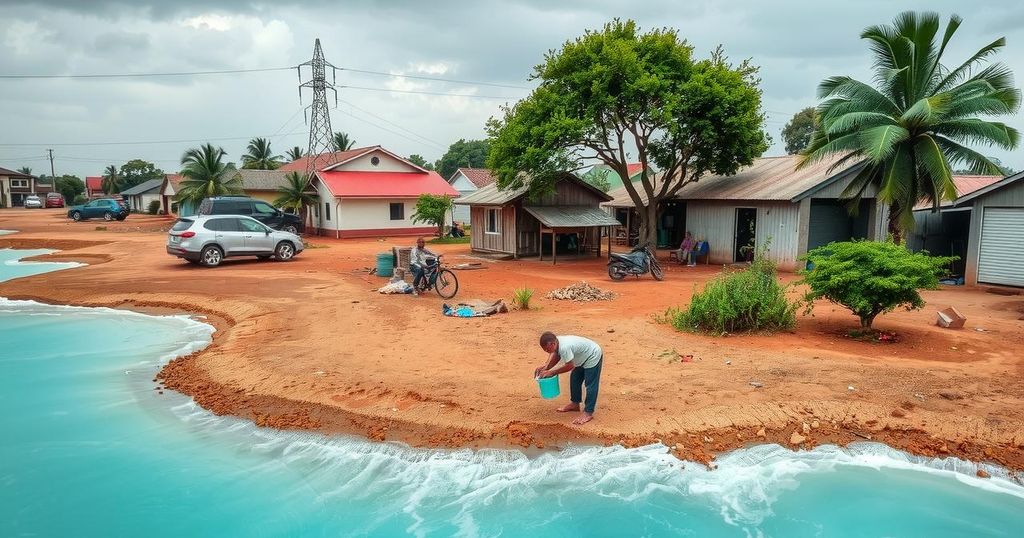Côte d’Ivoire: Pathway to Economic Transformation and Climate Resilience

Côte d’Ivoire has achieved notable economic growth and stability, with a focus on addressing structural challenges and climate change vulnerabilities. The support from the IMF has been crucial in maintaining macroeconomic stability and facilitating reforms aimed at achieving upper middle-income status. The government prioritizes domestic revenue mobilization, enhancing the business climate, and developing initiatives to combat climate threats as key components of its development agenda.
Côte d’Ivoire has established itself as a beacon of growth and stability in West Africa, evidenced by impressive economic achievements such as a decade of GDP growth averaging 6.4 percent. The country has demonstrated resilience against global economic shocks, maintaining an inflation rate of about 2.2 percent and progressively reducing poverty levels. However, persistent structural challenges, particularly in the informal employment sector, hinder progress towards inclusive growth and broadened fiscal capabilities. As Côte d’Ivoire embarks on an economic diversification path, it aims to address vulnerabilities such as heavy reliance on the cocoa industry and increasing climate-related risks.
The African nation seeks to achieve upper middle-income status with the assistance of the International Monetary Fund (IMF). During a recent conversation, Côte d’Ivoire’s Minister of Finance, Adama Coulibaly, outlined the country’s considerable strides in public investment aimed at social protection and infrastructure development, significantly contributing to poverty reduction despite increasing refugee influxes. The IMF’s support remains pivotal, allowing the country to maintain macroeconomic stability and enabling its return to international financial markets.
Olaf Unteroberdoerster, IMF Mission Chief, emphasized the significance of domestic revenue mobilization in sustaining economic transformation. The government’s ongoing strategy to enhance tax systems aims to create fiscal space required for essential sectors such as health and education. Furthermore, improvements in the business climate through high-quality public service delivery, vocational training, and social protection initiatives are critical for attracting private sector investment.
Climate change poses significant challenges for Côte d’Ivoire due to rising temperatures and shifting rainfall patterns, impacting its agricultural-dependent economy. The IMF-backed Resilience and Sustainability Facility is pivotal in confronting these vulnerabilities through comprehensive reforms encompassing climate risk governance, sustainable financing, and emission reduction strategies. Recent initiatives unveiled during the COP29 meetings underscore the government’s commitment to enhancing climate financing coordination and executing adaptation projects aimed at promoting green growth.
Côte d’Ivoire is poised for a migration towards greater economic resilience, with strategic support from the IMF and ongoing commitment to critical reforms crucial for achieving sustainable growth in the face of climate change.
Côte d’Ivoire, a country in West Africa, has emerged as an essential player in regional economic stability and growth, particularly in light of its significant GDP growth and improvements in public welfare. The nation has benefitted from structured partnerships with international bodies such as the IMF to implement reforms geared towards macroeconomic stability, resilience against climate change, and the pursuit of upper middle-income status. This backdrop establishes an understanding of the ongoing efforts in addressing economic challenges and climate threats while promoting inclusive and sustainable development in the region.
In conclusion, Côte d’Ivoire has demonstrated remarkable progress in economic stability and growth, underpinned by strategic reforms and commitment to combat climate change impacts. The support from the IMF has played a crucial role in facilitating this journey towards upper middle-income status while simultaneously addressing the vulnerabilities posed by climate risks. Moving forward, the government’s focus on enhancing domestic revenue, improving public services, and mobilizing private sector investment will remain key to sustaining economic transformation and resilience.
Original Source: www.imf.org








